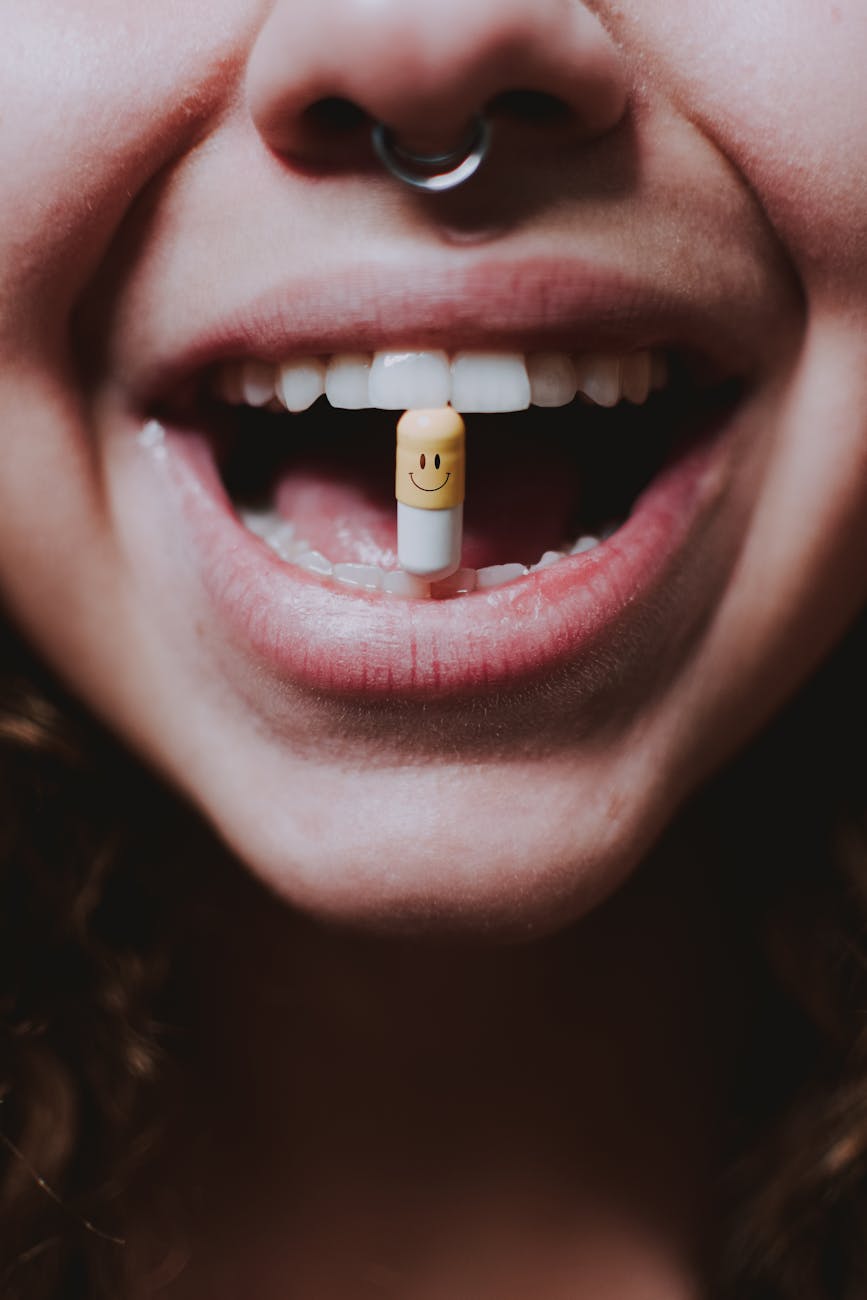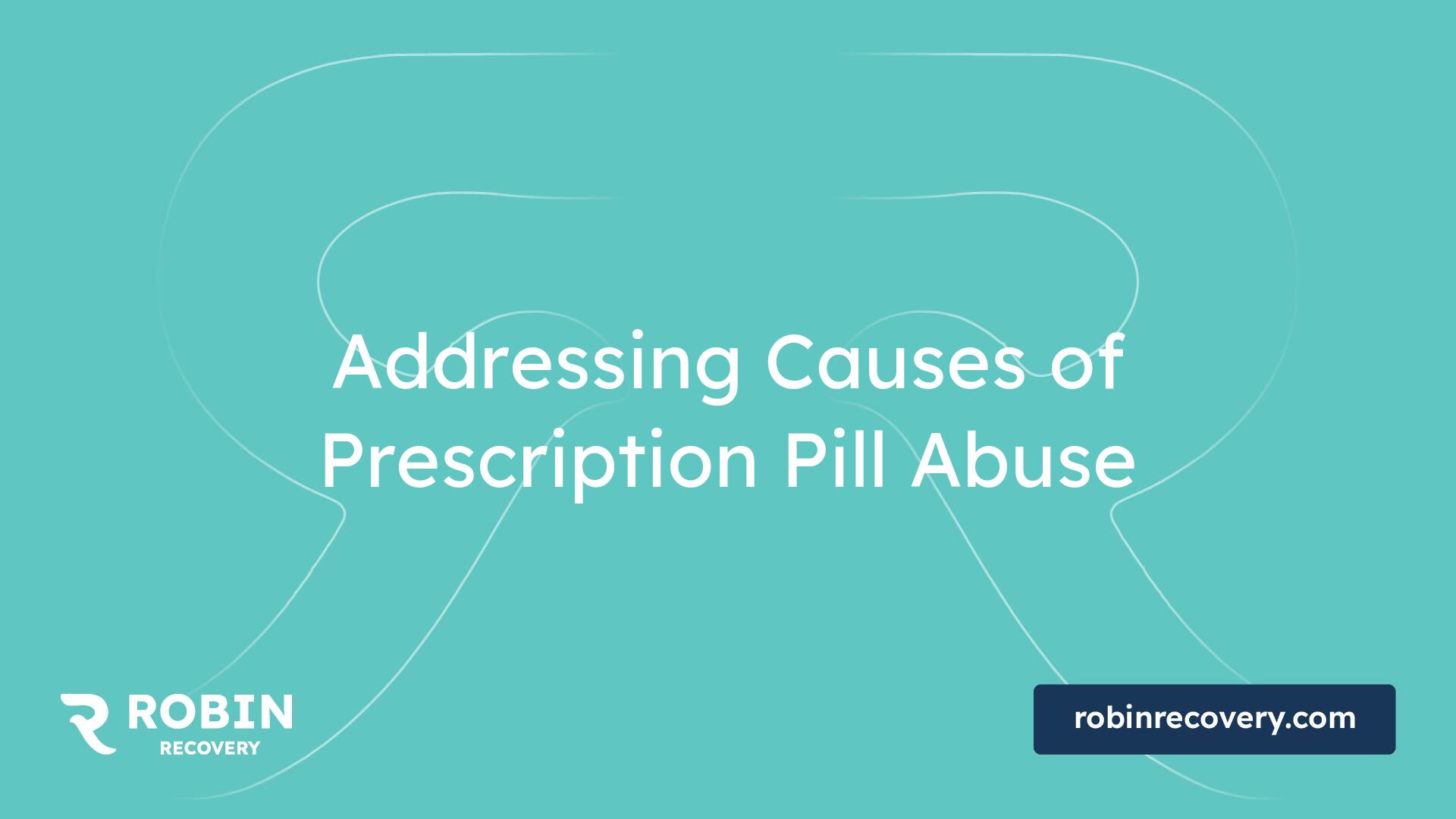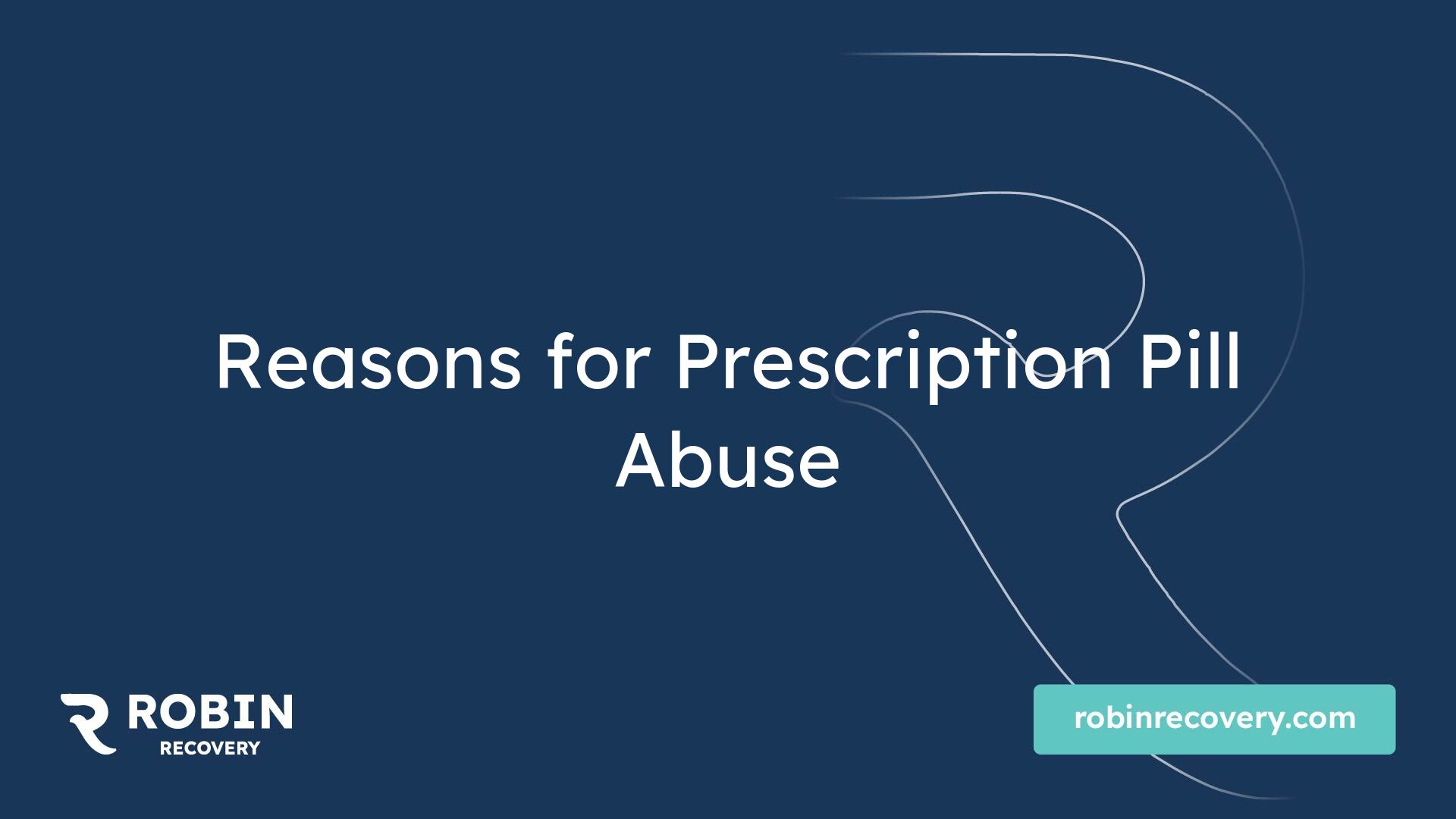Addressing Causes of Prescription Pill Abuse

Prescription Pill Abuse Overview

Scope of the Issue
Prescription pill abuse has become a significant public health concern in the United States. According to the National Institute on Drug Abuse, more than 7 million people aged 2 and older have used prescription drugs non-medically, surpassing the combined use of cocaine, heroin, hallucinogens, and inhalants. This growing trend indicates that prescription drugs are being abused more than any other substance, with the exception of marijuana [1].
The alarming rise in this form of substance abuse is further highlighted by the statistics on overdose deaths. Prescription pain relievers were involved in almost one-third of all prescription drug overdose deaths in the U.S. in 2007, representing over 27,000 fatalities that year [1]. This underscores the dire consequences of prescription pill misuse.
YearNumber of Prescription Drug Users (Millions)Overdose Deaths Involving Prescription Drugs2007727,000
Impact on Society
The impact of prescription pill abuse extends beyond the individual, affecting families, communities, and the healthcare system. The Centers for Disease Control and Prevention (CDC) has identified drug overdose as a leading cause of preventable death in the U.S.. The widespread nature of this issue has led to increased healthcare costs, lost productivity, and significant strain on law enforcement and social services.
Additionally, the societal stigma surrounding addiction often prevents individuals from seeking help, leading to long-term consequences for both users and those around them. Addressing the root causes of prescription pill abuse is essential for decreasing its prevalence and mitigating its societal effects. Understanding these causes of prescription pill abuse will help lay the groundwork for effective prevention strategies.
Reasons for Prescription Pill Abuse

Understanding the causes of prescription pill abuse can help address the growing issue of addiction and its repercussions across society. Various factors contribute to this concerning trend, along with the demographics that may be more susceptible to substance misuse.
Factors Driving Abuse
Several reasons contribute to the rising abuse of prescription medications:
FactorDescriptionEuphoric EffectsIntense feelings of pleasure from misuse leading to heightened overdose risks.AccessibilityIncreased availability from higher prescriptions and online pharmacies.Misunderstanding of RisksLack of awareness regarding the dangers, especially among teenagers.Demographic VulnerabilitiesHigher rates of misuse among females, older adults, and individuals in poor health.
Vulnerable Populations
Certain populations are more vulnerable to prescription pill abuse, often due to various risk factors:
Assessing these factors and populations provides insight into how to effectively tackle the issue of prescription pill abuse. Identifying and addressing these underlying issues could lead to effective prevention and treatment strategies.
Consequences of Prescription Pill Abuse
Prescription pill abuse can lead to severe and far-reaching consequences, impacting both physical and psychological health.
Physical Health Risks
Long-term misuse of prescription medications poses several physical health risks. Chronic abuse can lead to conditions such as cardiovascular disease, as well as an increased risk of specific cancers. Additionally, individuals may face risks associated with infectious diseases such as hepatitis B and C, and HIV.
The table below summarizes some common physical health risks associated with prescription pill abuse:
Health RiskDescriptionCardiovascular DiseaseIncreased likelihood due to the effects of certain drugs on heart health.Certain CancersLong-term use of certain prescription drugs is linked to an elevated risk of various cancers.Hepatitis B and CRisk increases through shared needles or other means if drugs are injected.HIVElevated risk due to similar routes of transmission as drug use.OverdoseChronic misuse can lead to dangerous overdose situations, especially with opioids.
Psychological Effects
Prescription drug addiction also significantly impacts mental health. Many individuals experience increased levels of depression and anxiety, along with psychiatric challenges that can worsen over time. The interplay between mental health disorders and substance abuse is prevalent; these conditions often coexist, influencing each other and contributing to a cycle of deterioration in well-being [6].
The table below highlights some notable psychological effects of prescription pill abuse:
Psychological EffectDescriptionDepressionWidespread among individuals who abuse prescription drugs; can lead to severe emotional distress.AnxietyHeightened anxiety levels common in those who misuse prescription medications.Memory ProblemsImpaired memory and difficulty concentrating often observed.Psychotic BehaviorIn severe cases, some may experience hallucinations or delusions.
Individuals abusing prescription medications must be aware of these potential health implications. Seeking help and exploring options for treatment and recovery is crucial for regaining control over their health and lives. For more information on treatment options, readers can refer to our section on treatment options.
Prevention of Prescription Pill Abuse
Preventing prescription pill abuse is a multifaceted approach that involves intervention strategies and comprehensive education and awareness campaigns. Understanding the causes of prescription pill abuse is critical for effective prevention.
Intervention Strategies
Several strategies can be implemented to help mitigate the nonmedical use of prescription medications. Physicians, patients, and pharmacists all have pivotal roles in this process.
StrategyDescriptionPDMPsTrack prescriptions to reduce misuseMedication DisposalSafe disposal methods to prevent accessPatient CommunicationFull disclosure of medications to providersADFFormulations designed to curb misuse
Education and Awareness
Educational campaigns targeting both the general public and healthcare professionals are essential for prevention. Raising awareness about the risks of prescription pill abuse and the importance of responsible medication use can significantly reduce rates of addiction.
Through these intervention strategies and educational initiatives, society can work towards reducing the prevalence of prescription pill abuse and its associated consequences.
Public Health Initiatives
Public health initiatives are crucial in addressing the causes of prescription pill abuse and mitigating its impact on individuals and society. These initiatives often involve coordinated efforts from government agencies and healthcare providers to prevent misuse and support effective treatment options.
Government Interventions
The federal government has taken significant steps to combat prescription pill abuse. Since 2015, initiatives have been coordinated to reduce overdoses and prevent opioid use disorders. The ongoing Helping End Addiction Long-term (HEAL) Initiative by the National Institutes of Health aims to address opioid misuse, addiction, and overdose directly. Additionally, the CDC issued guidelines for prescribing opioids for chronic pain in 2016 to promote safer prescribing practices.
Prescription drug monitoring programs (PDMPs) are essential in tracking the prescribing and dispensing of controlled substances. Data indicates that states implementing PDMPs have shown lower rates of opioid prescribing and overdose. Medication regulations, such as rescheduling hydrocodone products by the Drug Enforcement Administration in 2014, have also proven effective in reducing the availability of certain medications prone to misuse.
Government InitiativesDescriptionHEAL InitiativeFocused on addressing opioid misuse and addictionPDMPsTrack prescriptions to reduce misuseCDC GuidelinesPromote safe prescribing practices
Healthcare Provider Roles
Healthcare providers play a vital role in preventing the nonmedical use of prescription drugs. Physicians, patients, and pharmacists must collaborate to identify potential abuse and offer early intervention. Patients are encouraged to communicate openly with healthcare providers about all medications they are taking, including over-the-counter drugs and supplements. This information helps healthcare providers make informed decisions regarding prescriptions and potential risks.
Furthermore, healthcare providers can educate patients on the proper disposal of unused or expired medications, recommending they follow FDA guidelines or visit Drug Enforcement Administration collection sites. The development of abuse-deterrent formulations (ADF) of opioid medications also assists in preventing misuse by making it more difficult to tamper with the drugs.
In summary, public health initiatives driven by government interventions and healthcare provider roles are essential in addressing the causes of prescription pill abuse. Through education, regulation, and the implementation of monitoring programs, these efforts aim to create a safer environment for prescribing and administering medications.
Addressing Prescription Pill Addiction
Treatment Options
Addressing prescription pill addiction requires a multifaceted approach, including various treatment options aimed at helping individuals regain control over their lives. The federal government has initiated efforts to combat opioid use disorders, including programs like the National Institutes of Health's Helping End Addiction Long-term (HEAL) Initiative. This ongoing initiative aims to reduce overdose rates and the misuse of opioids through research and improved medical practices.
One promising development in the field of addiction treatment is the creation of abuse-deterrent formulations (ADF) of opioid medications. These new formulations are designed to minimize the potential for misuse by making it difficult to snort or inject the medication, consequently decreasing the illicit value of these drugs [7].
Additional treatment strategies include the use of non-addictive pain medications and other alternative approaches targeting pain relief systems like the endocannabinoid system. These efforts aim to manage chronic pain while preventing the nonmedical use of prescription drugs.
Treatment TypeDescriptionBehavioral TherapyAddresses patterns of thought and behavior related to addiction through techniques such as cognitive behavioral therapy (CBT).Medication-Assisted Treatment (MAT)Combines behavioral therapy with medications, such as buprenorphine and methadone, to treat opioid addiction.Support GroupsOffers a community for individuals in recovery to share experiences and provide mutual support.Inpatient RehabilitationProvides intensive support in a controlled environment, often recommended for severe cases of addiction.
For more information on the benefits of structured recovery settings, check our article on the benefits of inpatient treatment.
Support and Resources
The journey to recovery from prescription pill addiction is often challenging and requires significant support. Mental health issues such as depression and anxiety frequently accompany substance abuse, influencing the recovery process [6].
Family and friends play a crucial role in supporting individuals struggling with addiction. Their involvement can foster a supportive environment that encourages recovery. Resources such as support groups and counseling can provide essential coping strategies for both the person in recovery and their loved ones.
Additionally, statistics reveal the prevalence of nonmedical prescription drug use. Over 18 million people ages 12 and older reported using prescription drugs for nonmedical reasons in the past year, highlighting the need for comprehensive support systems [4].
Common resources for individuals seeking help include:
Resource TypeDescriptionHotlinesProvides immediate support and guidance for individuals in crisis.Rehabilitation CentersOffers structured programs tailored to addiction recovery.Community Support GroupsConnects individuals with others who share similar experiences for emotional support.
For more on addressing mental health issues related to addiction, see our articles on dealing with depression and common CBT techniques.
References
[2]:
[3]:
[4]:
[5]:
[6]:
[7]:
